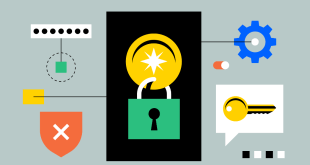In the rapidly advancing digital age, data has become the lifeblood of modern society. With the massive amounts of sensitive information transmitted across various networks, ensuring its protection from cyber threats has become paramount. Traditional encryption methods, while effective, face growing challenges from the ever-evolving capabilities of hackers. This is where quantum encryption comes into play, offering a new level of security that has the potential to revolutionize data protection.
The Quantum Leap in Data Encryption
At its core, quantum encryption harnesses the principles of quantum mechanics to secure data communication. Unlike classical encryption, which relies on mathematical algorithms, quantum encryption leverages the unique properties of quantum particles, such as photons, to encode and transmit data securely. This approach introduces an unprecedented level of security, making it virtually impossible for eavesdroppers to intercept or tamper with the encrypted information.
Quantum encryption provides two critical components: quantum key distribution (QKD) and quantum-resistant encryption algorithms. QKD ensures the secure exchange of encryption keys, while quantum-resistant algorithms safeguard against potential future attacks from powerful quantum computers.
Understanding Quantum Key Distribution
Quantum key distribution is the cornerstone of quantum encryption. It allows two parties, typically referred to as Alice and Bob, to establish an unbreakable encryption key through the exchange of quantum bits or qubits. Any attempt to intercept these qubits by an eavesdropper, often called Eve, would disturb the quantum state, instantly alerting Alice and Bob to the potential breach.
One of the prominent QKD protocols is the “BB84” protocol, developed by Charles H. Bennett and Gilles Brassard in 1984. It relies on the polarization of photons to represent the binary values of 0 and 1, ensuring the secure distribution of the encryption key.
Quantum-Resistant Encryption: Preparing for the Future
While quantum key distribution provides secure encryption keys, quantum-resistant encryption algorithms are essential to protect the encrypted data itself. The development of quantum computers threatens to render many classical encryption algorithms vulnerable, which makes adopting quantum-resistant algorithms a priority.
Among the promising quantum-resistant algorithms is the lattice-based encryption, which is based on the computational hardness of problems in higher-dimensional lattices. The NIST (National Institute of Standards and Technology) is actively evaluating various quantum-resistant algorithms, striving to establish standards to safeguard against future threats posed by quantum computers.
Advantages of Quantum Encryption
Quantum encryption offers several advantages that make it a compelling choice for data protection in various industries:
Unconditional Security:
Quantum key distribution provides unconditional security based on the fundamental principles of quantum mechanics, making it immune to attacks based on computational power or algorithmic vulnerabilities.
Real-Time Detection:
Quantum encryption allows for real-time detection of any attempt to intercept or tamper with the encrypted data, providing immediate notification of potential breaches.
Future-Proofing:
By incorporating quantum-resistant encryption algorithms, quantum encryption remains robust against future threats posed by quantum computers, ensuring long-term data security.
Highly Scalable:
Quantum encryption systems can be scaled efficiently, making them suitable for large-scale data communication and secure transmission across networks.
Challenges and Limitations
As with any emerging technology, quantum encryption also faces challenges and limitations that need to be addressed:
Infrastructure Requirements:
Implementing quantum encryption requires specialized hardware and infrastructure, which can be costly and complex to deploy.
Key Distribution Over Long Distances:
Ensuring secure quantum key distribution over long distances can be challenging due to the loss of photons in transmission.
Integration with Existing Systems:
Integrating quantum encryption with existing communication systems and protocols may require significant effort and coordination.
Quantum Computing Progress:
The rapid progress in quantum computing poses a constant challenge for ensuring quantum encryption remains ahead of potential quantum threats.
Future Implications
Quantum encryption holds immense promise for transforming the landscape of data protection. As the technology matures, we can expect to see significant advancements in various fields:
Cybersecurity:
Quantum encryption will raise the bar for cybersecurity, making it increasingly difficult for malicious actors to compromise sensitive data.
Financial Services:
Quantum encryption will play a crucial role in securing financial transactions and protecting customer information in the banking and financial sector.
Healthcare:
Quantum encryption will safeguard personal health data, medical records, and sensitive research findings, fostering advancements in healthcare technology.
Government and Defense:
Governments and defense agencies will rely on quantum encryption to protect classified information and secure communications.
Final Words
In conclusion, quantum encryption represents a groundbreaking leap in data protection. By leveraging the principles of quantum mechanics, this technology offers unparalleled security, unbreakable encryption keys, and the potential to thwart even the most advanced cyber threats. Embracing quantum encryption will empower industries and individuals to safeguard their valuable data in an increasingly interconnected world.
Frequently Asked Questions
Q1. How does quantum encryption differ from traditional encryption methods?
Quantum encryption relies on the principles of quantum mechanics, using quantum bits (qubits) to establish unbreakable encryption keys. In contrast, traditional encryption methods rely on mathematical algorithms.
Q2. Is quantum encryption practical for everyday use?
While quantum encryption is still in its early stages, researchers are making significant strides in making it more practical for real-world applications. As technology advances and costs decrease, we can expect broader adoption.
Q3. Can quantum encryption protect against quantum computers?
Yes, by using quantum-resistant encryption algorithms, quantum encryption can defend against potential threats posed by quantum computers, ensuring data security in the future.
Q4. How does quantum key distribution prevent eavesdropping?
Quantum key distribution relies on the laws of quantum mechanics, which state that any attempt to intercept qubits will disturb their state, alerting both parties to the presence of an eavesdropper.
Q5. What industries will benefit the most from quantum encryption?
Industries dealing with sensitive data, such as finance, healthcare, government, and defense, will benefit significantly from the enhanced security offered by quantum encryption.
 webfily
webfily



